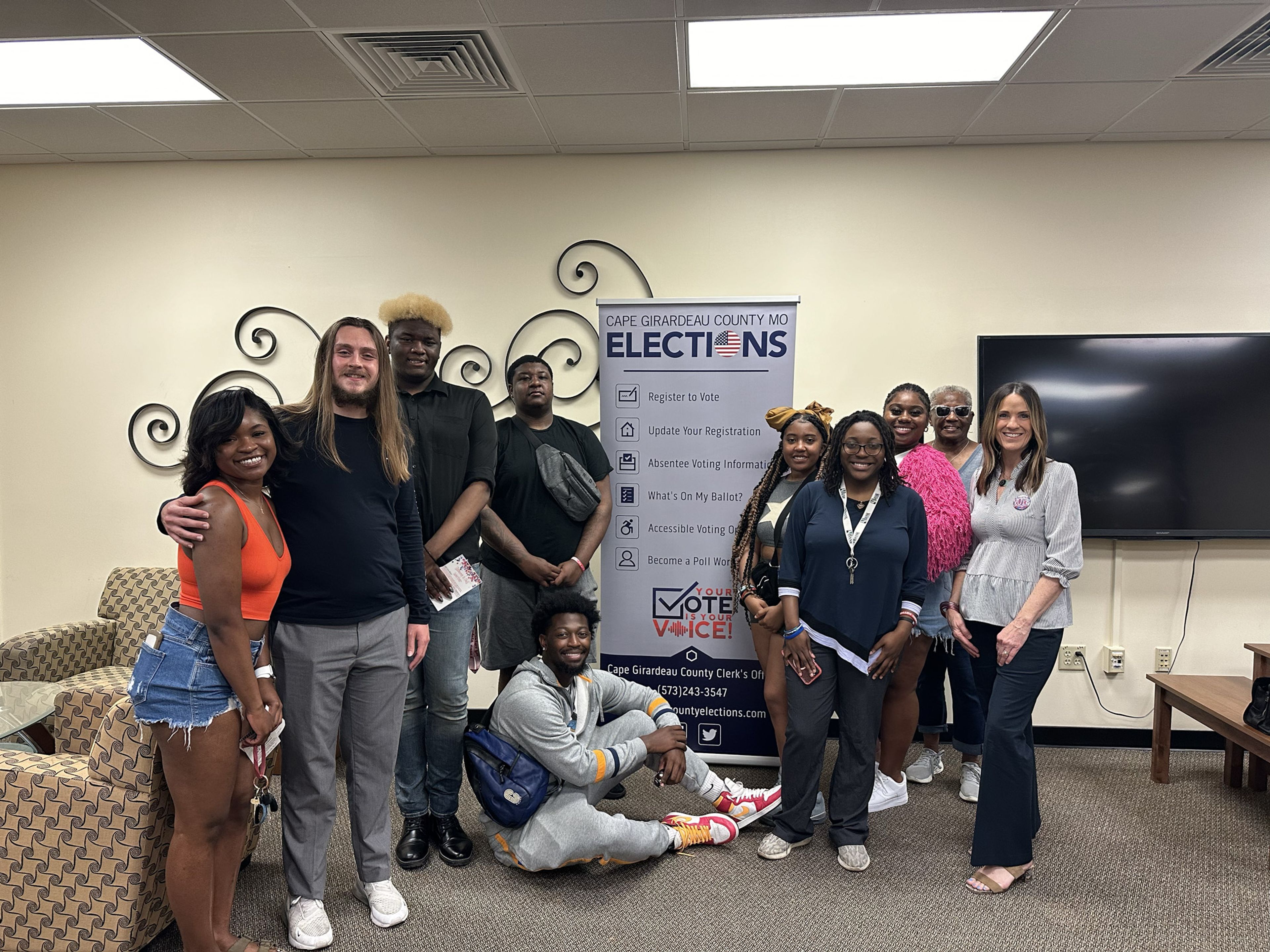A partnership was established between the Center for Strategic and International Studies, a bipartisan think tank in Washington, D.C., and Southeast Missouri State University in 2004. This relationship was brought about from President Dr. Kenneth W. Dobbins' desire to expand the campus community's world view, and 11 years later it has become a distinguished program that has cultivated relationships between students, faculty, influential policy makers and more.
The program was formed when former Vice President of CSIS Eric Peterson spoke at an American Association of State Universities and Colleges meeting about the seven issues facing the global community. That speech prompted Dobbins to invite Peterson to Southeast's campus to share that same insight with students.
"He gave this wonderful presentation that was about the seven revolutions, or issues, that we have to face as a global economy, and I said we would love for you to do this at Southeast, so he came to Southeast," Dobbins said. "After he saw our students and our campus he said we would like to start a relationship with a university that would bring us some ideas from outside the belt and help them also."
Ever since then, Southeast has been sending 30 students a year to represent the campus and to expand their knowledge and ideas of what it means to be a global citizen as they sit amongst some of the nation's most influential individuals.
"It gives them the opportunity to think globally about a lot of things, and it helps expose them to some amazing people," Dobbins said. "And it has affected us because of the students who come back bring their new perspective."
While the university subsidizes much of the cost, which has allowed students from varying backgrounds to take part in the program, there is still a small cost for students who participate.
However, Dobbins said he believes this program is so life-changing and worth the cost that he makes a promise to the students when he addresses them in their first meeting.
"I go and talk to the students before they go," Dobbins said. "I tell them that this a life-changing experience, and if it is not, I will give them their money back."
Dr. Willie Redmond, a professor of economics at Southeast who helps lead the program, said the program and even how it came about is sure to be a major legacy left by Dobbins.
"I think the true legacy of the program is allowing these students to expand their horizons," Redmond said. "A lot of times we have students who have never been to D.C. or haven't ever rode on an airplane, and I sometimes hear them say, 'Well I'm just from Southeast or Cape Girardeau,' and they sometimes think that they are not a part of these big changes that are taking place, and I think the CSIS program allows them to see that with preparation, they can sit down with people who are the leading policy makers in the world and talk about some of these issues and understand how they are connected to them."
Redmond said that the forming of the program is a great lesson that shows how important building relationships can be.
"This started just from relationships," Redmond said. "There is a good lesson for students to learn about networking and having conversations with people. You never know what could develop out of it and this program started through that process."
Southeast is currently the only university in the nation to have this relationship with CSIS but, according to Redmond, some of the nation's top schools, such as Stanford, have tried to establish the same relationship. However, due to the students Southeast brings and Dr. Dobbins' commitment, the organization has stayed exclusively with Southeast.
"In previous years there have been schools who have wanted to do what we are doing," Redmond said. "But they [CSIS] say that our students bring a lot of ideas to them, and they are interested in what they are saying."
Nick Maddock is one of those students who took part in the CSIS program in 2012 during his sophomore year. Maddock is an alumnus of Southeast who is currently living and working in the Washington, D.C. area. Maddock said he encourages students to go because Southeast has made it an affordable opportunity.
"It's difficult for a lot of college students to get the money to do trips like this," Maddock said. "And when you don't go on these trips, you don't get to see the benefits that derive from them."
Maddock said the program helped broaden his horizons and see that there were opportunities available outside of southeast Missouri.
"Coming from a smaller school you don't always see the opportunities that are available," Maddock said. "So going there and seeing all of the things that Southeast graduates were doing was one of the greatest things I took away from CSIS."




